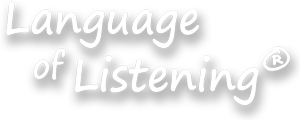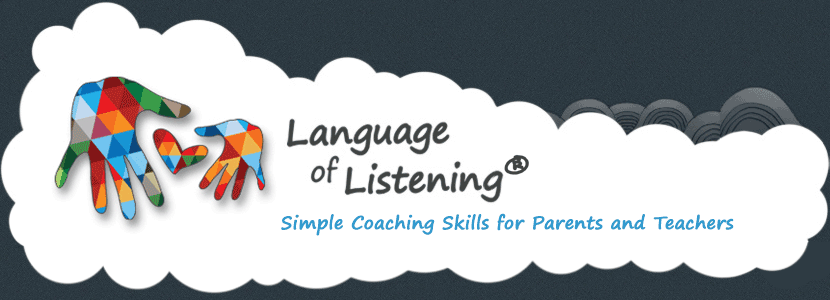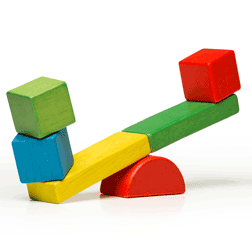Ever since we were little, my older sister Colleen has been concerned with “fairness.” She was aware of every discrepancy between the two of us, from the amount of attention we got from our parents to the number of apple slices we each had on our plates at snack time.
Since we were a Language of Listening® household, my parents used Success Training to turn this hyper-awareness into a strength — “master comparer.” Every time my mom was dividing, measuring, or pouring something, Colleen would be called over to assist because of her keen eye for exact equivalence. She wore it proudly, and it really helped that during moments she might have used as “proof” that my parents cared more about me, we were able as a family to identify that it was just her strong sense of “fairness.”
Recently, she shared that it has been coming up in her life a lot, in different ways. She has noticed that she has a hard time receiving favors because she worries she will “owe” that person. She is constantly concerned about maintaining a tit-for-tat level of equality in all of her friendships and relationships, and it’s proving very stressful. Fortunately, when we spoke on the phone most recently, I was able to identify her collapse that “fairness = equality” and offer a different perspective.
Several years ago, I read a great book called “Siblings Without Rivalry” (If you like our stuff, I heavily recommend it). One of the chapters in that book dealt with fairness, and it gave me a wonderful mindset that has made this often hot-button topic a non-issue for me in my own personal life as well as my work with children. The main point of the chapter is that “children don’t need to be treated equally, they need to be treated uniquely.”
If you have ever interacted with children, you know this to be true. You can spend the exact same amount of time with two children, and one of them will say that it’s still unfair because his brother got to spend the time first, or because he got to be playing with a special toy when he did it. Trying to make everything exactly the same between children is one of the fastest ways I know to drive yourself crazy.
So I don’t. Instead, I tailor the activity to fit the specific needs of the child.
One day I was working on the playground at a preschool. There were about 5 children who all wanted to use the only swing. After establishing that the child currently on the swing would need to eventually let someone else have a turn, I asked him how many pushes he would like before he could feel ready to get off. When he announced “four!” (his own age), I checked with the bystanders to make sure they felt able to wait that long. Once I got clearance that everyone was okay with four, we counted together as I gave him four pushes on the swing. As soon as his four were up, he gleefully slid off the swing and stood at the end of the line that had formed.
I asked the next little girl how many pushes, and she requested ten, so once again I checked with the other children, then we counted together until her turn was up. The next child wanted five. Very quickly it became evident that they were more excited about picking a number that had personal significance to them (their age, as high as they could count, etc.) than about getting the same number of pushes as the child before.
This works in the adult world, too. When people make a business arrangement, usually they are not agreeing to both receive the same thing or split something equally down the middle. Negotiations are engineered so that each party is happy with the individual results that reflect their specialized needs.
Fairness is not about getting equal stuff but about equally getting “what you want,” no matter how radically different.
Or, as I put it to Colleen over the phone, “Fairness doesn’t mean that everybody gets the same thing. It just means that everyone is happy.” Freed from the burden of equality, she was invigorated and eager to put this new definition of “fairness” into practice in her life, when just moments before, the idea of “fair” was a stressful, often impossible prospect.
When you think about it, it only makes sense. Since what you want (i.e.what you like & love) is an expression of who you are, how could it ever be fair for one person to be validated and another not?











